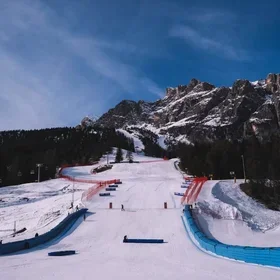As the M.S. in Sports Management program prepares to begin a fall semester amid the ongoing pandemic, Academic Director Scott Rosner paused to reflect on the turbulence of the past several months and the collective resilience that has sustained the program through it all.
In his latest piece for Sports Business, Rosner recounts the challenges of pivoting to remote learning during the lockdown, the “difficult conversations” about racism following the murder of George Floyd and the program’s plans to offer hybrid in-person/online courses in the fall.
“The importance of great team chemistry has never been clearer to me than over the past five months,” he writes.
Apart from requiring students and faculty to adjust to daily life on Zoom, the shift to remote learning was further complicated by the fact that 30% of the students were participating from outside the U.S. Not only did this pose logistical problems from the standpoint of time zones, the Trump administration’s threat to revoke the visas of international students who do not participate in-person continues to loom over the program.
Anxiety about COVID-19 hit close to home when two students tested positive for the coronavirus and the “longest-standing, beloved faculty member” Bill Squires was hospitalized.
“We talk a lot about grit with our students and this was most certainly tested,” Rosner writes. “Some fell down, but all got up. It was the proudest moment of my career.”
While he highlights the importance of the program’s ethos of “over-communication, availability, transparency, and empathy,” Rosner credits the students with fostering the spirit of camaraderie at the heart of the Sports Management community.
“Perhaps my biggest takeaway has been the importance of both organizational culture and high functionality during high-stress situations,” he concludes. “We have developed a very strong programmatic culture that is driven primarily by our students. Students constantly hang out with each other in groups both large and small. It’s not uncommon to find a contingent of 30 to 40 students in Central Park on weekends, sunbathing, playing sports, babysitting their peers’ young children and likely doing other things that we don’t necessarily want or need to know about. There are high levels of trust and cooperation. They are excellent teammates.”
Read the full piece and learn more about the M.S. in Sports Management program.


